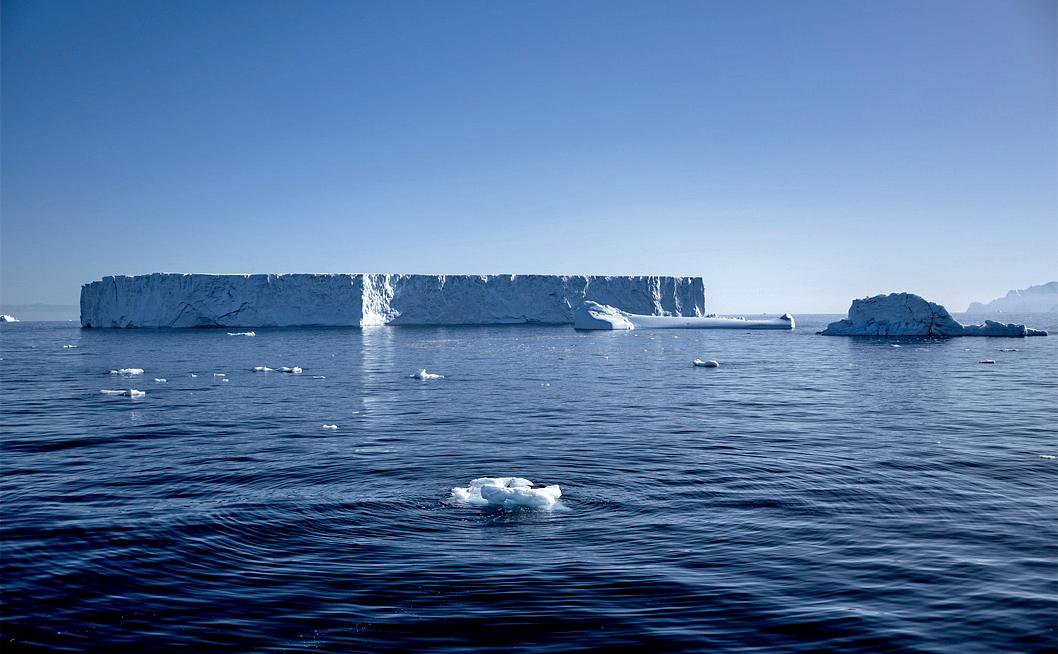
By the end of March, the surface temperature of the world's oceans was above anything seen in the 40 years that satellites have been measuring it. Records were "headed off the charts" and, as the heat refused to dissipate for more than a month, the Earth had entered "uncharted territory", scientists said.
The temperature at the ocean's surface - like that on land - is being pushed higher by global heating, but can jump around from one year to the next as weather systems come and go. But in the 2km below the surface, things are different.
The temperature down there has been on a relentless climb for decades.
"The heat-holding capacity of the ocean is mammoth," says Dr Paul Durack, a research scientist specialising in ocean measurements and modelling at the US Department of Energy's Lawrence Livermore National Laboratory. "The ocean captures more than 90% of the imbalance of energy that we're creating because of anthropogenic climate change." The ocean soaks up more of the direct energy from sunlight than land does. But as greenhouse gases trap more of the energy that's reflected allowing less to escape to space - the ocean tries to balance itself with the heat in the atmosphere above. The latest UN climate assessment laid out the heat gain. Between 1971 and 2018, the ocean had gained 396 zettajoules of heat.
How much is that? Scientists have calculated it is equivalent to the energy of more than 25bn Hiroshima atomic bombs. And that heat gain is accelerating.
This story is from the {{IssueName}} edition of {{MagazineName}}.
Start your 7-day Magzter GOLD free trial to access thousands of curated premium stories, and 9,000+ magazines and newspapers.
Already a subscriber ? Sign In
This story is from the {{IssueName}} edition of {{MagazineName}}.
Start your 7-day Magzter GOLD free trial to access thousands of curated premium stories, and 9,000+ magazines and newspapers.
Already a subscriber? Sign In

If kids get protected from online harm, how about the rest of us?
The Australian government has proposed a ban on social media for all citizens under 16.

'It's not drought - it's looting'
Spain is increasingly either parched or flooded - and one group is profiting from these extremes: the thirsty multinational companies forcing angry citizens to pay for water in bottles.

Life in the grey Zone
Neonatal care has advanced so far that babies born as early as 21 weeks have survived. But is this type of care always the right thing to do?

Out of tune? Band Aid under fire for Africa tropes as it turns 40
Forty years ago this month, a group of pop stars gathered at a west London studio to record a single that would raise millions, inspire further starry projects, and ultimately change charity fundraising in the UK.

Deaths shine spotlight on risks of drinking on party trail
Vang Vieng is an unlikely party hub. Surrounded by striking limestone mountains and caves in central Laos, it morphed from a small farming town to a hedonistic tourist destination in the early 2000s.

Different strokes My strange and emotional week with an AI pet
Moflin can develop a personality and build a rapport with its owner - and doesn't need food or exercise. But is it comforting or alienating?

Strike zone Waking up to the rising threat of lightning
When the Barbados National Archives, home to one of the world's most significant collections of documents from the transatlantic slave trade, reported in June that it had been struck by lightning, it received sympathy and offers of support locally and internationally.

Cheap pints and sticky carpets: the old-school pub is back
In the Palm Tree pub, east London, barman Alf is taking only cash at the rattling 1960s till.

Brain gain Can a radical tax scheme convince the country's brightest to stay?
In the autumn of 2018, I moved to Lisbon for a month-long course at the Universidade .de Lisboa.

Fear and sympathy in small town divided over asylum camp
A year after anti-immigration riots, a site for asylum seekers faces hostility while some locals try to help new arrivals